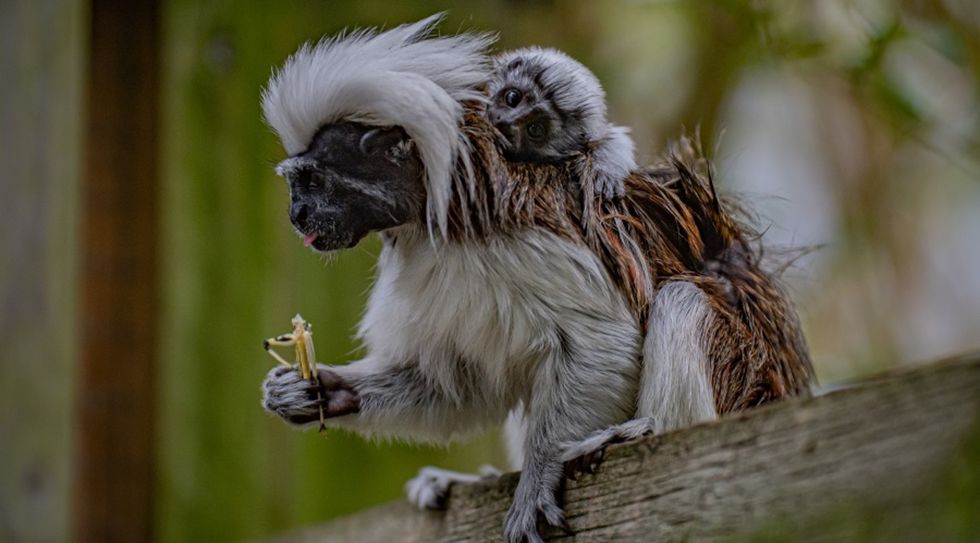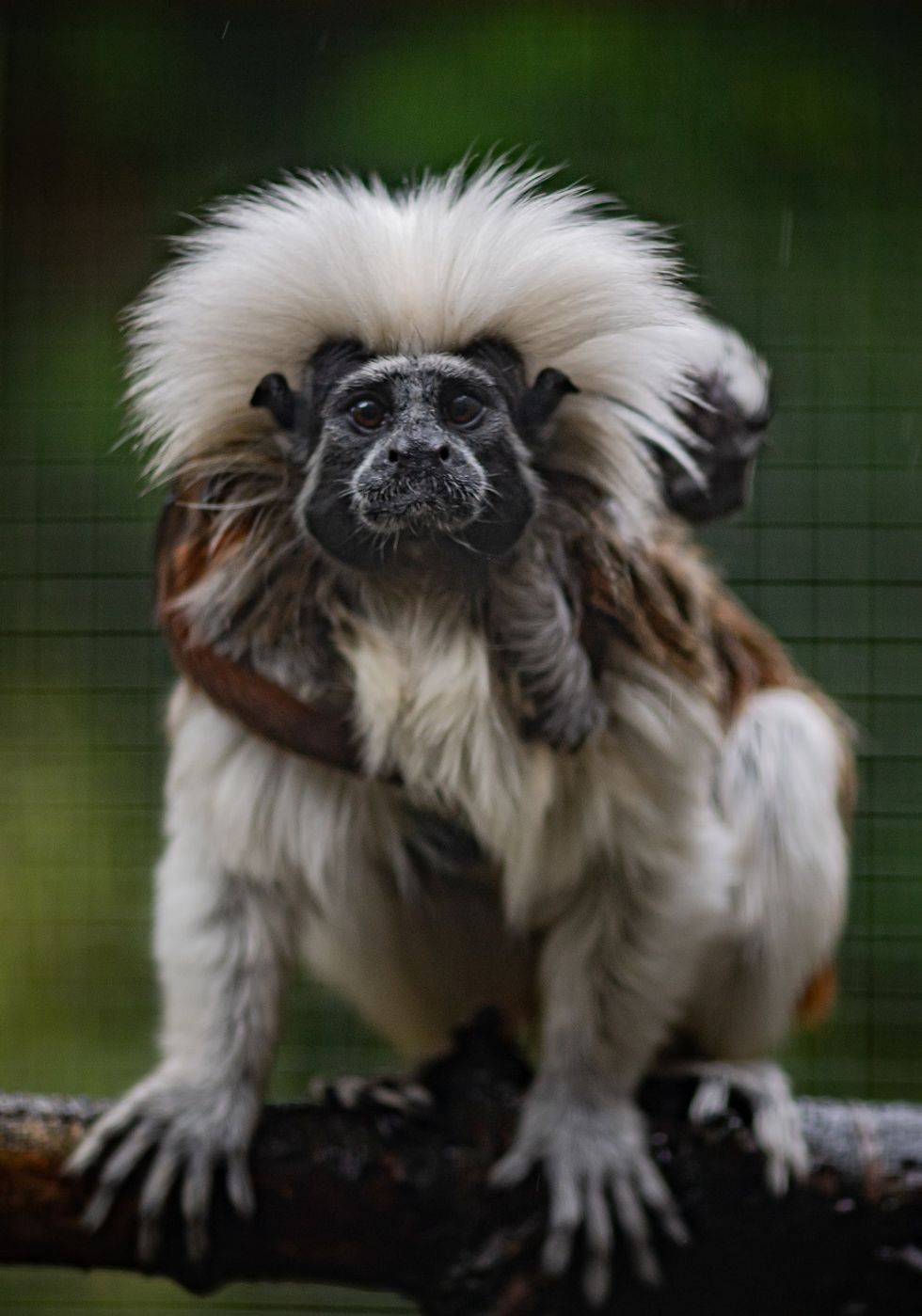Lottie Kilraine
Apr 14, 2022

A critically endangered baby cotton-top tamarin has been born at Chester Zoo. (Chester Zoo/PA)
A British zoo has celebrated the birth of a cotton-top tamarin monkey which is one of the world’s most endangered primates.
Keepers at Chester Zoo, in Cheshire, have said they are “overjoyed” by the arrival of the rare miniature monkey.
The newborn is the first to be born at the zoo in 22 years, measuring just 10cm from head to tail and weighing only 40 grams.
Primate experts at the zoo have said it is “incredibly special” to witness first-time parents, three-year-old Treat and five-year-old Leo, settling into family life.
“We strongly suspected that Treat was pregnant from our regular monitoring of her weight and seeing her belly swell, but it was a fantastic surprise nonetheless to see a tiny little ball of fluff clinging onto her back one morning,” zookeeper Siobhan Ward said.
“The baby will be carried around by both parents for around the next six months – but it’s actually dad who’s been doing most of the carrying so far, passing it to mum for feeds while he stays protectively close by.
“It’s incredibly special to be able to see the little one so soon after its birth and after opening its eyes for the first time to take in the world.”
It is estimated that just 2,000 breeding tamarins remain in the wild and their numbers are predicted to decline by 80% in the next 20 years, making them one of rarest of all primate species.

The miniature monkeys are native to a small area in northern Colombia but only 5% of their original habitat now remains intact due to mass deforestation and the illegal wildlife trade is another significant threat to their survival.
“It wasn’t that long ago that these miniature primates were seen as quite a common species, so their dramatic demise over the last few years shows just how a species thought to be safe can change so rapidly,” said Nick Davis, Chester Zoo’s Deputy Curator of Mammals.
“Cotton-top tamarins have an iconic look with their voluminous plume of white fur on the tops of their head.
“This crest of hair raises up when then they get excited, or feel that they need to warn off danger, making them look bigger and more intimidating.
“It’s these distinctive looks that tends to draw poachers to them.”
Top 100
The Conversation (0)













